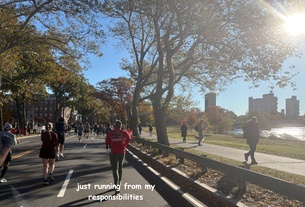Not all students at Harvard are so involved in student groups, but for the most invested, participation means devoting more than a few hours to out-of-classroom commitments. According to Cyatharine M. Alias ’15, her active participation in various PBHA programs costs her about half her time every week, with the rest of that time devoted to her personal life and her schoolwork. Guidarini says she spends 40 or 50 hours weekly working for the IOP, and she thinks about it “every minute.” She calls her role as the organization’s top student leader a “full-time job.”
THE VALUE ADDED
Across the board, students immersed in the College’s extracurricular culture point to the opportunity to build friendships based on shared interests and develop leadership skills as they collaborate with their peers as reasons for participating in student groups.
Brett M. Biebelberg ’16, a UC representative who also participates in first responder organization CrimsonEMS, says that student groups fill a need for social opportunities created by Harvard’s lack of a large Greek scene that is present on other college campuses. Other students add that they derive much of their social lives from the students they meet in various groups.
“One of the big drivers of [selecting extracurriculars] are whether or not [students] feel they’re making friends in the activity and whether they feel like they have a strong affinity for the people they’re meeting,” says Thomas S. Wooten ’08, a tutor in Quincy House and Ph.D. candidate in the Sociology Department who is currently researching extracurricular life at Harvard.
Wooten adds that, for some students, extracurricular life seems to be “supplanting social life with a blocking group or social life in a House.”
Beyond the social opportunities, members of student groups learn practical skills by working with peers, planning meetings, and networking while pursuing a passion, they say. The desire for applicable, real-world skills can push students to seek leadership experience in the ranks of one of many existing groups—and if they don’t like their options, they create their own.
UC President Gus A. Mayopoulos ’15, who served as president of the humor publication Satire V before he led the UC’s charge to demand that administrators increase funding for student groups, highlights negotiation as one of the many skills he has developed through extracurriculars.
Ziyao “Eric” Wang ’15, co-president of the Harvard-Radcliffe Chinese Students Association, adds that through extracurriculars, he has learned “how to be a leader, how to manage, how to think about structural and organizational questions, how to build a network,” among other skills. Wang has been involved in a number of other groups, such as Harvard Student Agencies and the Harvard China Forum.
‘THIS IS AN ACADEMIC INSTITUTION’
While administrators and faculty largely acknowledge the educational and social value of participating in student groups, they maintain that students’ commitments to the classroom should and must remain their top priority.
"One thing that we know is that students who participate in activities will get more out of their college experience,” says Friedrich, who at the Office of Student Life oversees the registration process for student groups.
But Friedrich, like many of his colleagues, expresses the concern that some students may be having trouble balancing their extracurricular commitments with academics. “Academics do need to come first,” he says. “They are the priority here.”
History professor James T. Kloppenberg says extracurricular activities are valuable—but only if they are truly “extra” curricular, meaning that they do not supercede commitment to the academic realm.
“They should understand that they’re here to get an education, not to join 15 clubs,” adds Harry R. Lewis ’68, a computer science professor and former dean of the College.


